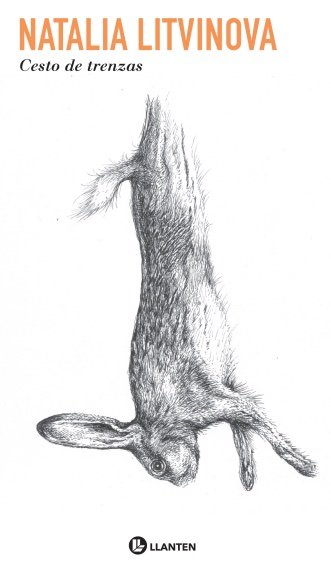5 Poems from Basket of Braids by Natalia Litvinova
Translated from Spanish by Kelsi Vanada
To meet up
with a man
on the other side of the forest
is to live out the mystery,
Mama explained
when I asked
where she went
at night.
The mystery
is a young pigeon squawking,
begging for food
from an absent mother.
Marvelous
desperation
sated.
Her laughter
is an explosion
of joy
and nostalgia
like my dance
before the mirror
in her dress.
What happened to the man
who once received her
on the other side of the forest?
I’m sitting
on the roots
of the fir tree
when a serpent
drops down onto my chest.
She stays there, still and cold,
her heart quivers
and mine does, too.
With my fingernail
I lift her scales
to learn her skin.
She attacks only those who flee.
Holding tight to the animal’s
strange, wide belly,
his coat
tickles me
as it gives off
a nauseating smell.
My cheek against his chest,
I can hear
his heartbeats.
How fast
do his heart and mine race?
Which of the two
will be faster
in the middle of the forest?
He squeezes me
tighter than men.
I lift
my head from his chest
to look at his antlers,
shining
varnished branches.
I stroke them
and hang my necklace
on them.
I could stay here,
looking into those dark eyes
that never cry.
Mine dry
from long desire.
I pray,
but does anyone
even hear this
whinnying?
There’s something glorious
in waiting,
rustling
into no one’s
ear.
About the author:
Natalia Litvinova is an Argentine poet, translator, and co-editor of the press Editorial Llantén. She was born in Gomel, Belarus, and has lived in Buenos Aires since her family’s immigration in 1996. Her books have been translated into multiple languages and published in Argentina and elsewhere. She teaches writing classes.
Kelsi Vanada’s translations include Sergio Espinosa’s Into Muteness (Veliz Books, 2020) and Berta García Faet’s The Eligible Age (Song Bridge Press, 2018), and she is the author of the poetry chapbook Rare Earth (Finishing Line Press, 2020). Kelsi is the Program Manager of the American Literary Translators Association in Tucson, Arizona.
